What can running offer in times like these? Maybe in addition to some much needed stress relief, for us, running is about more than fitness; it’s about disrupting the status quo. As we like to say, “The push for social justice and the fight against white supremacy doesn’t end when we put on our running shoes.”
Running disruptors take up space unapologetically, speaking candidly about the ways white supremacy and exclusionary practices shape running. They build communities that prioritize inclusivity, accessibility, and representation, offering a vision of what running can and should be for everyone.
These disruptors have done—and continue to do—the critical work of making running more equitable. But it’s important to remember that Black and Indigenous and other Women of Color don’t owe us (especially white women) their labor or time. Our role is to listen, learn, and uplift these disruptors’ efforts—and actively support the shift toward a more just and inclusive running culture.
The push for inclusivity shapes our sport, but its impact reaches far beyond. Building and nurturing inclusive communities is vital liberatory work, ensuring that we don’t leave anyone behind—on the trails or in the bigger struggles ahead of us following last night’s election. And these women are leading the way.
“Building and nurturing inclusive communities is vital liberatory work, ensuring that we don’t leave anyone behind—on the trails or in the bigger struggles ahead of us following last night’s election. And these women are leading the way.”
Alison Mariella Désir
“Alison Mariella Désir is multi-talented: a founder, a doer, an activist, a connector, a visionary, and an unapologetically straightforward communicator with a passion for movement, mental health, and racial equity.”
Her book, Running While Black: Finding Freedom in a Sport that Wasn’t Built for Us, is a “searing exposé on the whiteness of running, a supposedly egalitarian sport, and a call to reimagine the industry.” In my opinion, it’s required reading for running coaches, race directors, runners, and anyone who knows or loves a runner.
Follow @alisonmdesir on Instagram.
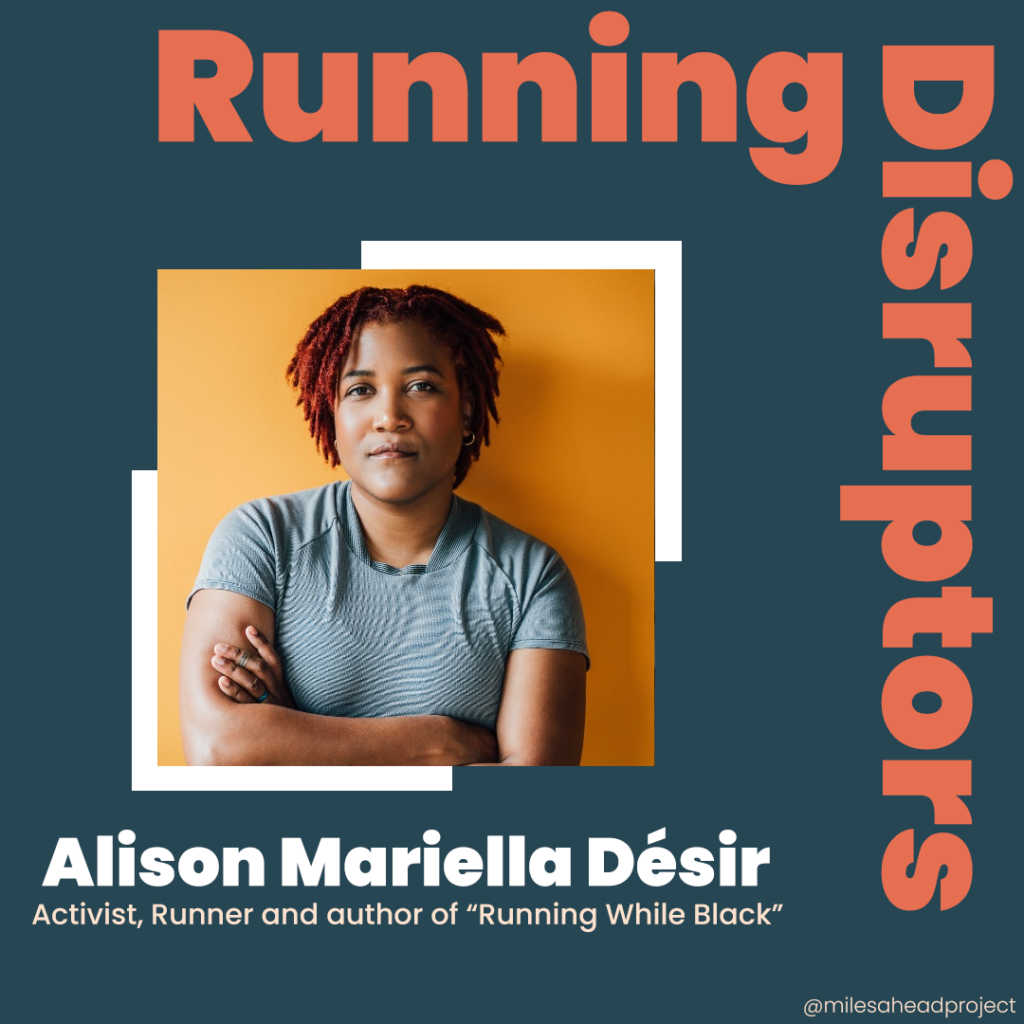
Vera Volker
Vera Volker, an ultrarunner and founder of Native Women Running, explains, “I founded Native Women Running (NWR) out of frustration. One day, I was scrolling through Instagram and noticed a lack of Native women runners. When I realized many runners don’t look like me, I decided to start NWR. My desire is for representation of Native women runners in the running world.”
NWR’s mission is to build and nurture a community that amplifies and encourages Native women runners, on and off the reservation, increasing visibility in the running world for historically excluded athletes.
Follow @native_women_run on Instagram.
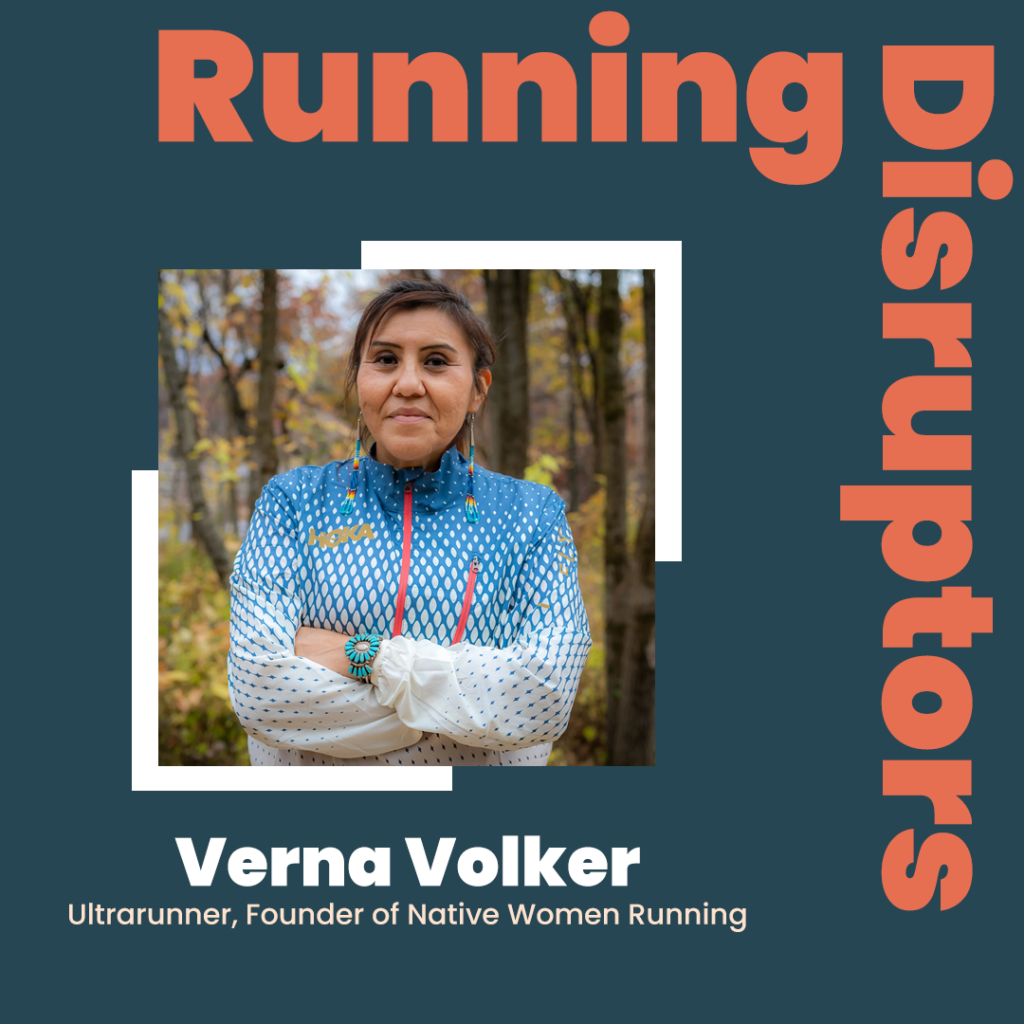
Latoya Shauntay Snell
Latoya Shauntay Snell a sponsored multi-sport endurance athlete and ultrarunner, advocates for body inclusivity and reshapes perceptions in fitness. She has completed 28 marathons and 6 ultramarathons and is the founder of Running Fat Chef, redefining fitness norms through her groundbreaking achievements and vocal advocacy for intersectionality in sports and wellness.
As she says, “I don’t center my runs around being fast. I center my runs around moving, existing, breathing, celebrating, enjoying all of these moments.” Snell’s unfiltered commitment to thriving and existing on her own terms has made her a dynamic marathoner and a voice of inspiration for runners of all backgrounds.
Follow @iamlshauntay on Instagram.
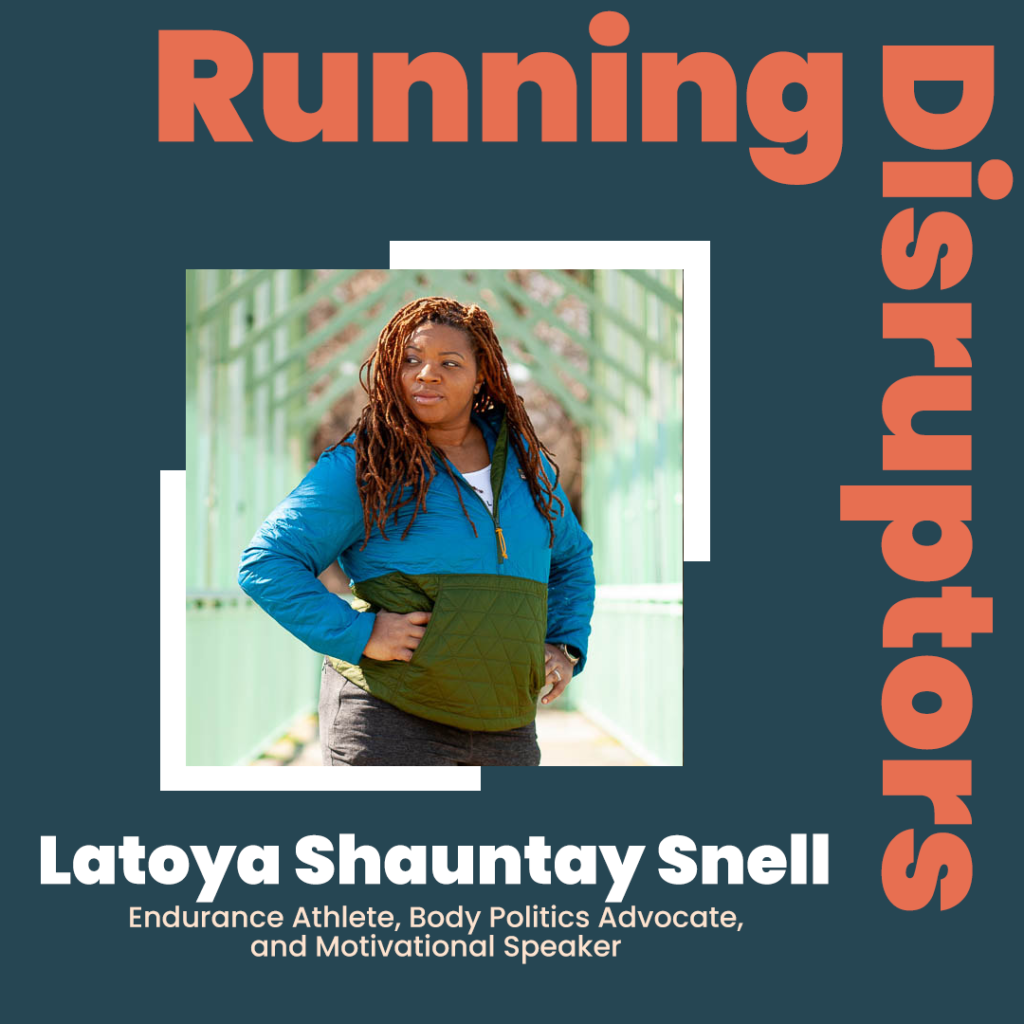
Who in your community is working to disrupt the status quo? How can we come together to build stronger, more inclusive, and liberatory spaces that offer safety, support, and respite for the challenges ahead?
If you’d like to connect or explore ways to collaborate,
reach out to us here.
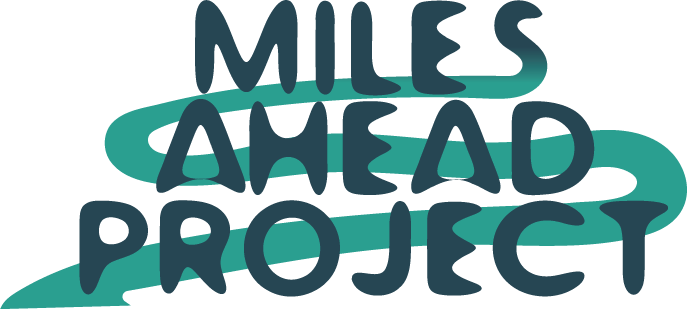
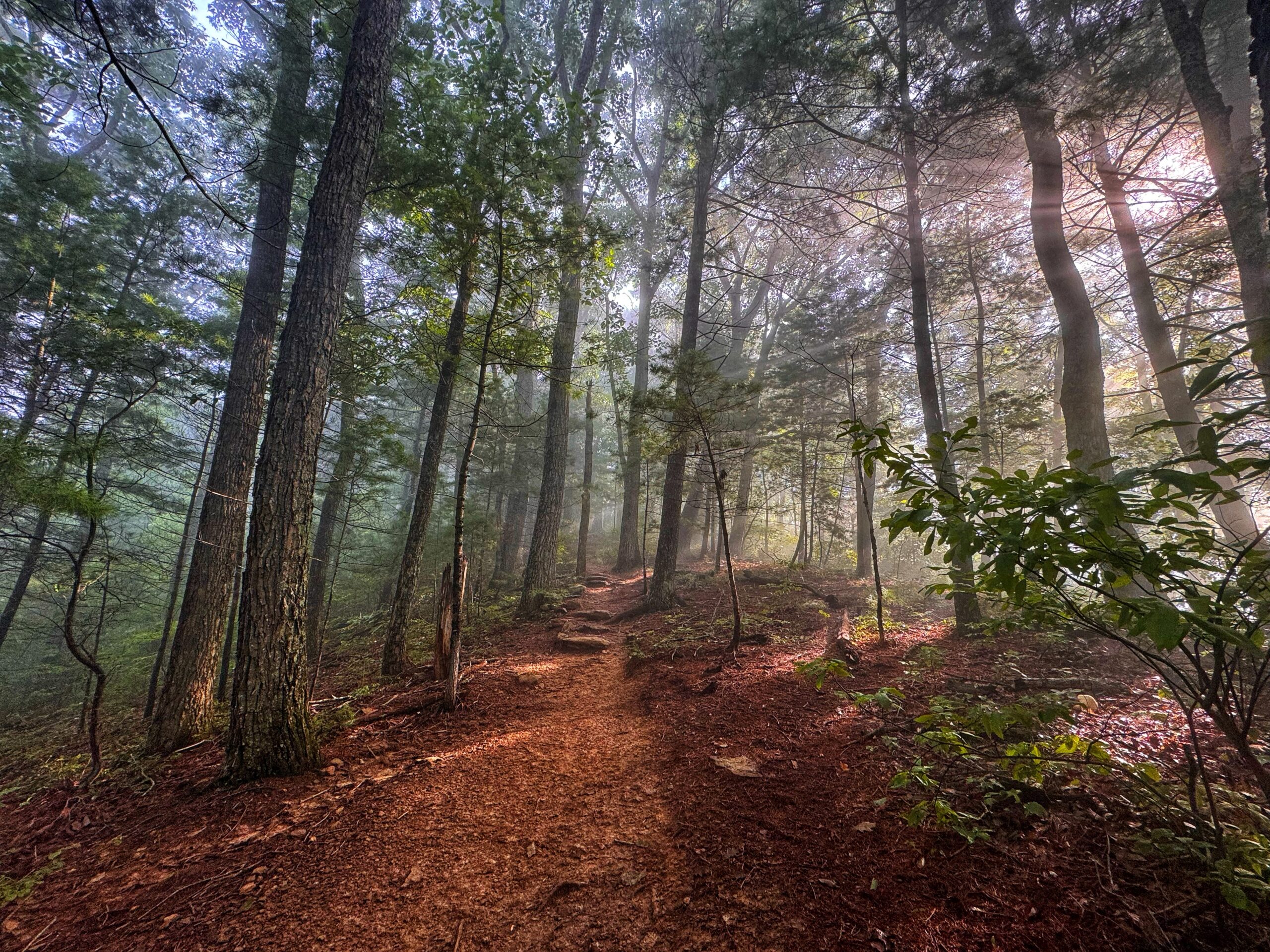
Leave a Reply
You must be logged in to post a comment.